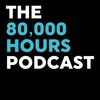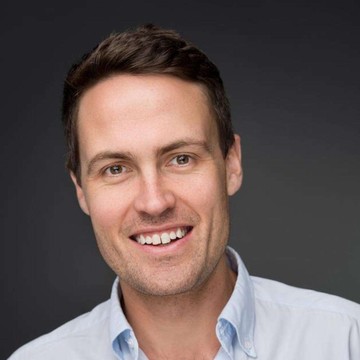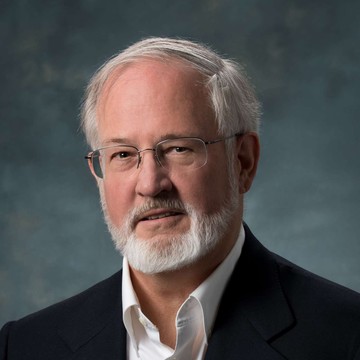

80,000 Hours Podcast
Rob, Luisa, and the 80000 Hours team
Unusually in-depth conversations about the world's most pressing problems and what you can do to solve them.
Subscribe by searching for '80000 Hours' wherever you get podcasts.
Hosted by Rob Wiblin and Luisa Rodriguez.
Subscribe by searching for '80000 Hours' wherever you get podcasts.
Hosted by Rob Wiblin and Luisa Rodriguez.
Episodes
Mentioned books

May 14, 2024 • 3h 7min
#187 – Zach Weinersmith on how researching his book turned him from a space optimist into a "space bastard"
Zach Weinersmith, the mind behind Saturday Morning Breakfast Cereal, dives into the deep complexities of space settlement in this engaging discussion. He shares his transformation from a space optimist to a skeptic, scrutinizing the bleak realities of Martian life, where labor mobility could be non-existent. The conversation also highlights the importance of governance in space, warning of potential exploitation in company towns. Expect a mix of humor and critical insights as they reflect on the profound challenges humanity faces beyond Earth.

13 snips
May 1, 2024 • 1h 19min
#186 – Dean Spears on why babies are born small in Uttar Pradesh, and how to save their lives
In this engaging discussion, Dean Spears, an associate professor at the University of Texas at Austin and founding director of r.i.c.e., sheds light on the critical neonatal health challenges in Uttar Pradesh, India. He reveals shocking neonatal mortality rates and explores the effective kangaroo mother care program, emphasizing its life-saving impact through skin-to-skin contact. The conversation also touches on the socioeconomic factors affecting maternal and infant health, and the hope for future improvements through innovative, low-cost healthcare solutions.

79 snips
Apr 18, 2024 • 2h 33min
#185 – Lewis Bollard on the 7 most promising ways to end factory farming, and whether AI is going to be good or bad for animals
Lewis Bollard, Director of the Farm Animal Welfare program at Open Philanthropy, dives into the urgent issues of factory farming. He discusses innovative solutions to alleviate animal suffering and the risks posed by AI in this context. Bollard outlines promising strategies to improve animal welfare, including corporate accountability and plant-based alternatives. The conversation also touches on recent legal victories and the global evolution of animal rights advocacy, igniting hope for a more humane future in food production.

135 snips
Apr 11, 2024 • 3h 31min
#184 – Zvi Mowshowitz on sleeping on sleeper agents, and the biggest AI updates since ChatGPT
Zvi Mowshowitz, author of the Substack "Don’t Worry About the Vase," shares his deep insights on AI developments and ethical dilemmas. He discusses the pressing issue of sleeper agents in AI, highlighting the challenges of alignment and safety. Zvi critiques current AI regulations and debates the effectiveness of major labs' safety strategies. He also explores the moral implications of working in AI, encouraging listeners to consider the impact of their choices. His perspective on policy reform reveals innovative ideas to address societal challenges.

31 snips
Mar 28, 2024 • 51min
AI governance and policy (Article)
Cody Fenwick, a research colleague focused on AI governance, dives deep into the critical intersection of advanced AI and policy. He outlines the potential global risks posed by AI systems and emphasizes the vital role of skilled professionals in steering governance to avoid exacerbating these threats. The discussion covers diverse career pathways, the value of effective communication, and the need for collaboration among stakeholders. Fenwick also highlights the importance of assessing personal fit and building career capital in this evolving landscape.

55 snips
Mar 14, 2024 • 2h 37min
#183 – Spencer Greenberg on causation without correlation, money and happiness, lightgassing, hype vs value, and more
Spencer Greenberg, a serial entrepreneur and host of the Clearer Thinking podcast, dives into intriguing discussions about money and happiness, revealing the complexities of their relationship. He shares insights on recognizing toxic behaviors in relationships, emphasizing the importance of self-awareness. The conversation also touches on the balance between hype and genuine value in marketing, and explores the significance of personal guiding principles in decision-making. Finally, Spencer highlights the role of rationality in addressing societal challenges.

24 snips
Mar 8, 2024 • 2h 22min
#182 – Bob Fischer on comparing the welfare of humans, chickens, pigs, octopuses, bees, and more
In this engaging conversation, Bob Fischer, a senior research manager at Rethink Priorities and director of the Society for the Study of Ethics and Animals, delves into animal welfare nuances. He explores the complex sentience of various beings—from chickens to octopuses—highlighting their emotional capacities and ethical implications. Fischer discusses the challenges of quantifying welfare and consciousness across species and urges a reassessment of how we prioritize suffering, prompting listeners to rethink their values regarding animal rights and welfare.

24 snips
Mar 1, 2024 • 1h 37min
#181 – Laura Deming on the science that could keep us healthy in our 80s and beyond
Laura Deming, the founder of The Longevity Fund and a venture capitalist in anti-aging technology, discusses transformative ideas around human longevity. She explores how we might manipulate aging in humans, not just accept decline as inevitable. Laura highlights a recent breakthrough in lifespan extension for dogs and emphasizes a social approach to the challenge of aging. She advocates for agency over our health choices and envisions a world where extended lifespans allow us to remain active and engaged well into our later years.

120 snips
Feb 21, 2024 • 2h 37min
#180 – Hugo Mercier on why gullibility and misinformation are overrated
Hugo Mercier, a cognitive scientist from the CNRS and author of "Not Born Yesterday," shares his insights on human gullibility and the misconception surrounding misinformation. He argues that people have evolved reasoning skills that promote beneficial communication rather than blind trust. The discussion covers how social context influences belief updates, the psychological dynamics of trust, and the potential impacts of AI on misinformation. Mercier challenges the prevalent view that gullibility and disinformation are major threats, emphasizing the perceptiveness of ordinary individuals.

122 snips
Feb 12, 2024 • 2h 57min
#179 – Randy Nesse on why evolution left us so vulnerable to depression and anxiety
Randy Nesse, a pioneer in evolutionary psychiatry and professor at the University of Michigan, dives into the perplexing vulnerability of our brains to depression and anxiety. He explains how evolution effectively optimized physical health but seemingly overlooked mental well-being, leading to high rates of youth anxiety. Randy discusses how emotions like anxiety and sadness may have adaptive roles, and he critiques the narrow lens of traditional psychiatry. He emphasizes the need for an integrative approach to understanding mental health through an evolutionary perspective.


